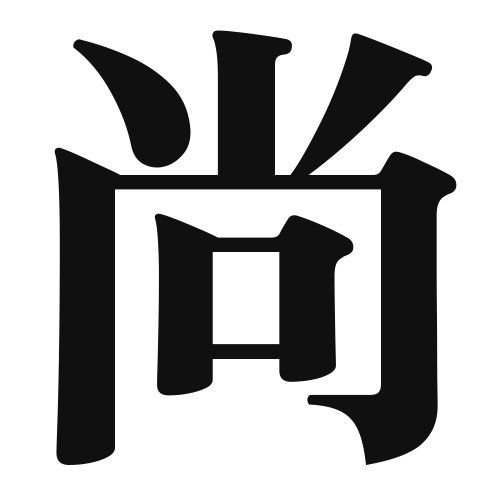1. Overview of Meaning
The kanji “尚” (shou) generally means “still,” “furthermore,” or “to esteem.” It conveys a sense of continuation or an elevated status in various contexts.
2. Formation and Radical
Formation of the Kanji: The kanji “尚” is a phonetic-ideographic character (形声文字). It combines the meaning of “to esteem” with a phonetic component that suggests its pronunciation.
Radical: The radical for “尚” is “亻” (the person radical), which often relates to human actions or characteristics.
3. Examples of Usage
Common Words and Phrases: Some frequently used words that include “尚” are “尚書” (shousho – a historical title) and “尚未” (shoumi – not yet).
Example Sentences in Daily Conversation:
- このプロジェクトは尚進行中です。 (This project is still ongoing.)
- 彼は尚、私たちのリーダーです。 (He is still our leader.)
4. Synonyms and Antonyms
Similar Kanji: A similar kanji is “尊” (son), which also means “to esteem” but carries a stronger connotation of respect or honor.
Opposite Kanji: An antonym is “軽” (kei), which means “light” or “to treat lightly,” contrasting with the elevated meaning of “尚.”
5. Cultural and Historical Background
Relation to Japanese Culture: The kanji “尚” is often used in formal contexts, such as in literature and historical texts, reflecting its significance in traditional Japanese culture.
Proverbs and Idioms: An example of an idiom that includes “尚” is “尚武” (shoubu), which means to value martial arts or military prowess, highlighting the cultural importance of honor and respect in Japan.
